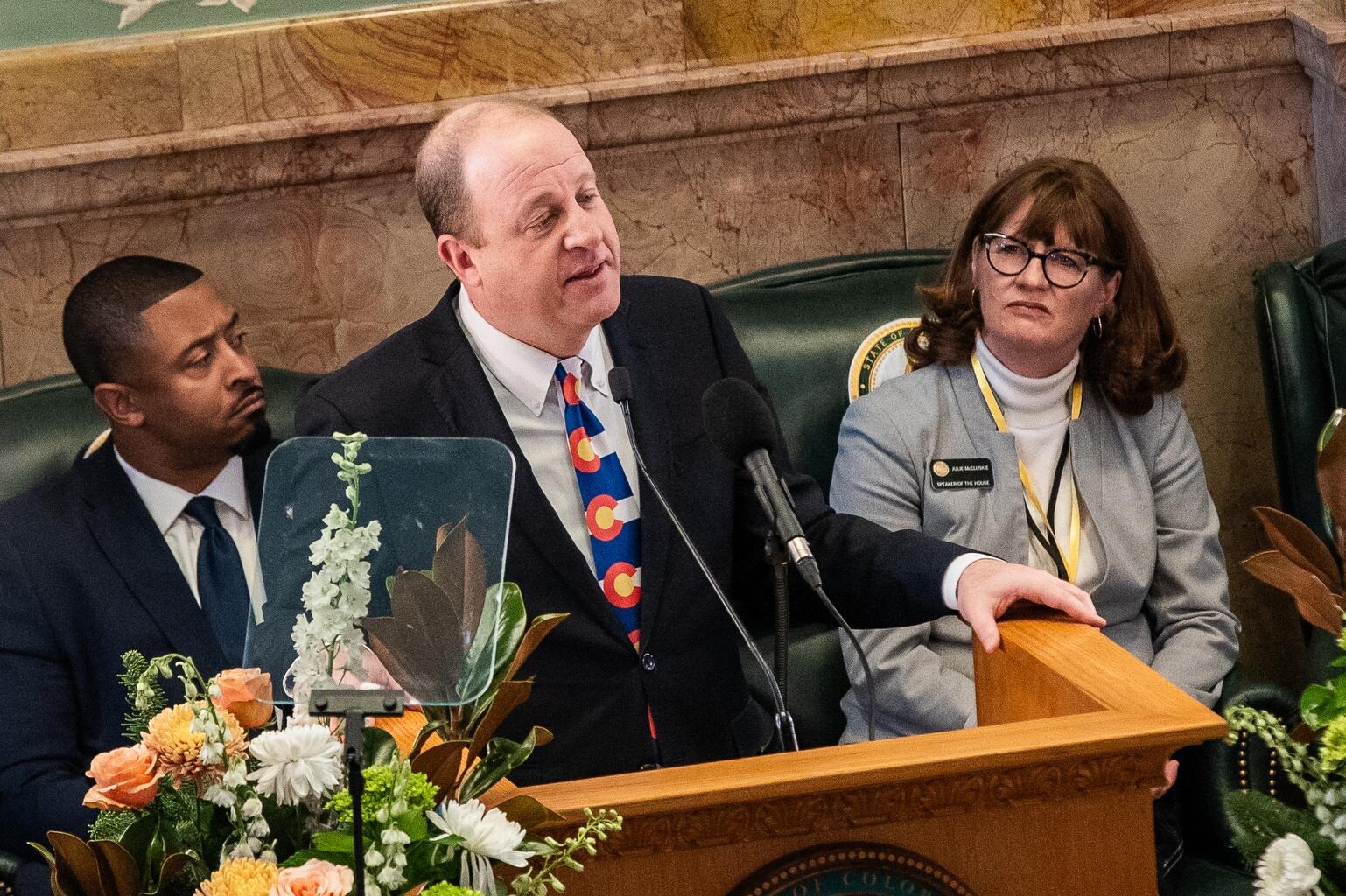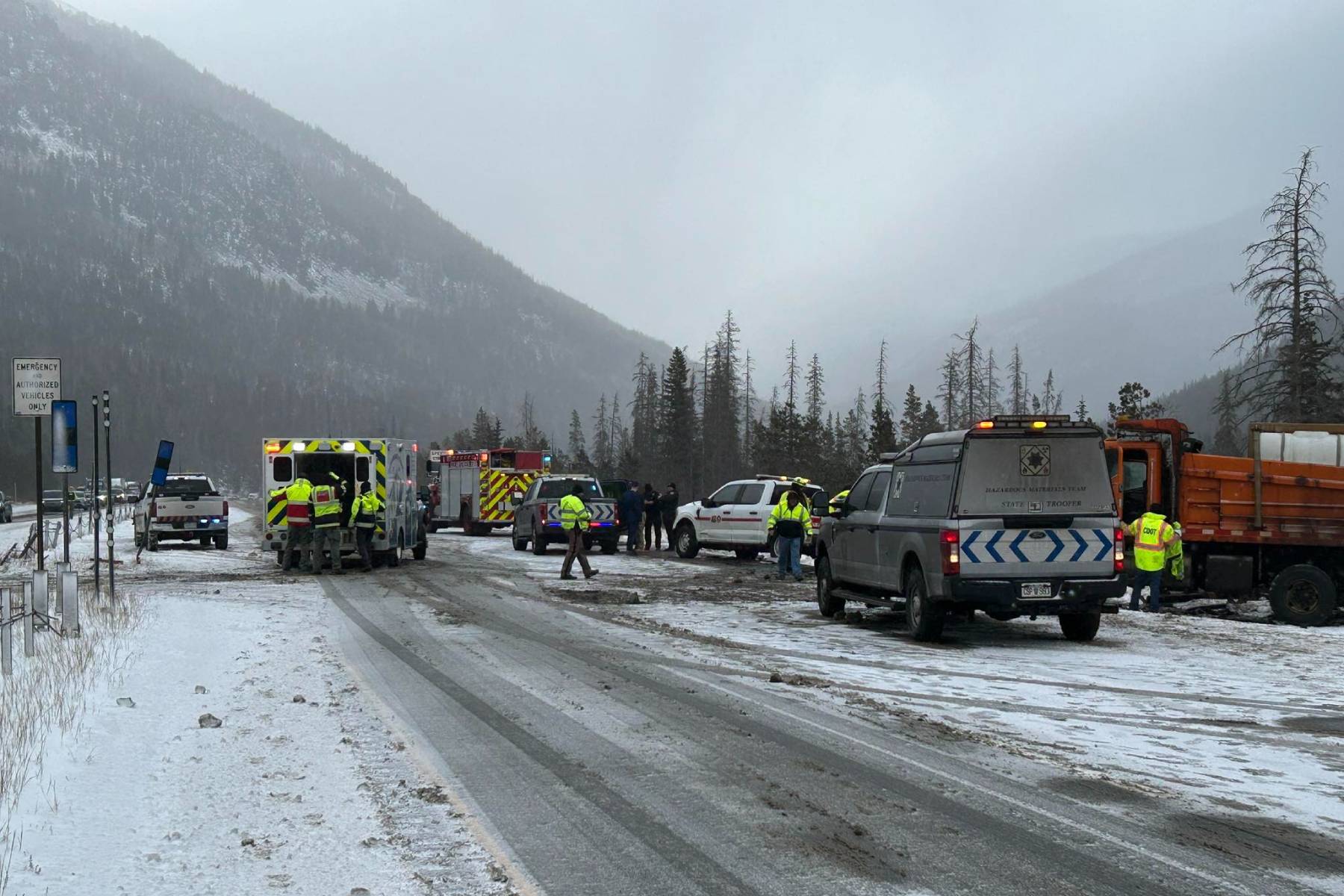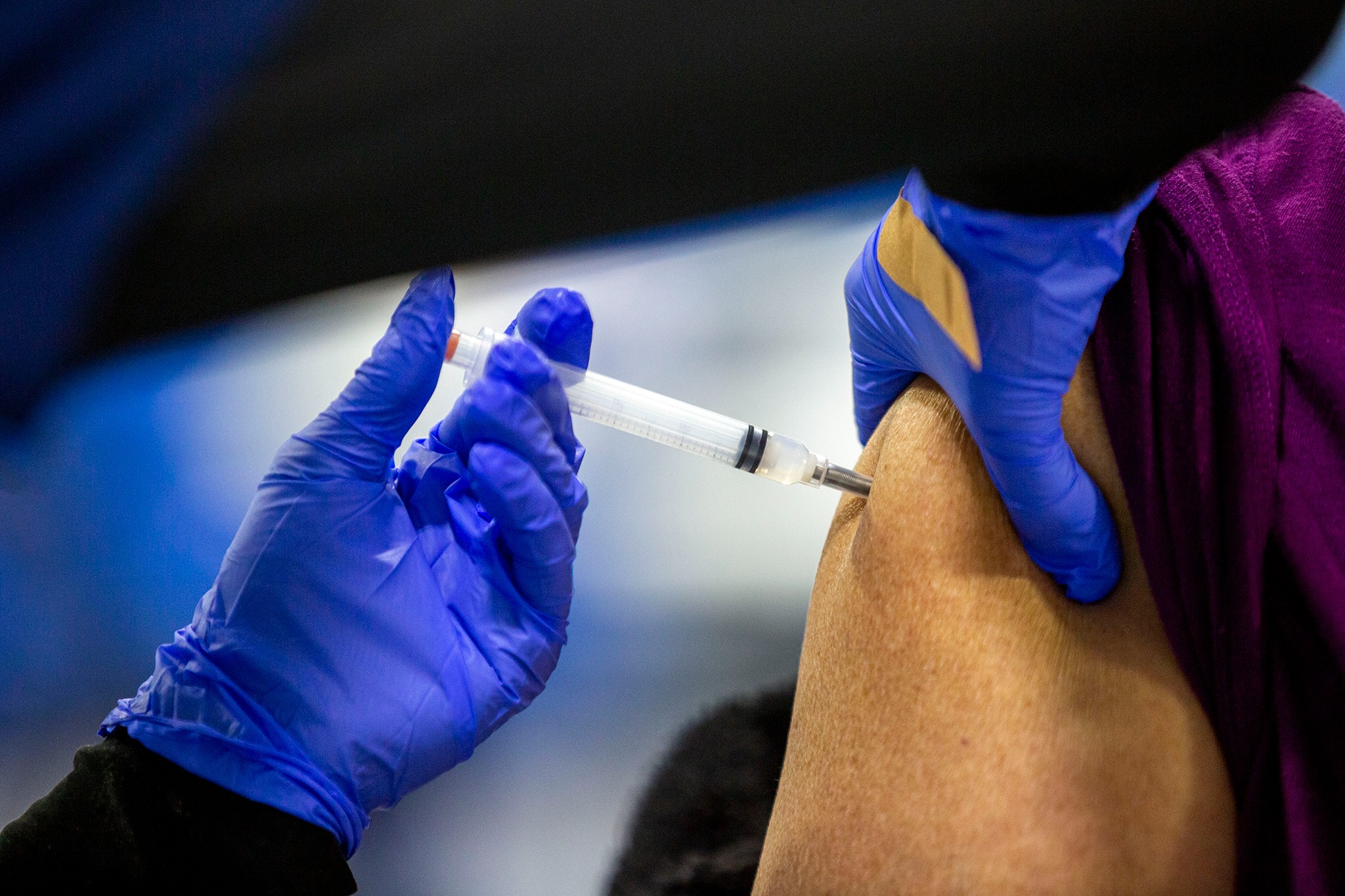
Updated June 18, 2025 at 3:50 p.m.
As the new Health and Human Services secretary makes unprecedented moves to undermine the current U.S. policy on vaccines, Colorado is leading the way in maintaining immunization recommendations, writing some protections into law.
Recently, Robert F. Kennedy Jr., at the helm of HHS and by extension, the federal Centers for Disease Control and Prevention, fired everyone on a federal vaccine advisory panel that makes policy and recommendations for the CDC. He also lifted recommendations for pregnant women and healthy children to be vaccinated against COVID-19.
Kennedy has said he’s restoring public trust by entirely replacing the members of the Advisory Committee for Immunization Practices, commonly called the ACIP. But vaccine and public health experts are dubious.
Colorado lawmakers saw this conflict coming and started preparing for the change, particularly to this critical national panel of doctors and vaccine experts, during this year’s legislative session.
So they passed a bill along party lines, later signed into law by the governor, which directs the state’s board of health to take into consideration recommendations from other high-profile doctors' groups, not just the CDC panel.
“I think you could see the writing on the wall, that it was just becoming overly politicized rather than relying on actual science with this new HHS director,” said Sen. Kyle Mullica, a Thornton Democrat and an ER nurse.
“We decided to protect Colorado,” said Mullica, who co-sponsored the legislation. He said Democratic lawmakers wanted to ensure “that in Colorado that we were able to rely on other science-based recommendations that potentially wouldn't be as vulnerable to political upheaval that we're seeing right now.”
Colorado leads the way
The Colorado law lists the groups for which the state Board of Health may seek vaccine recommendations, organizations that have long been key voices regarding vaccines: the American Academy of Pediatrics, the American Academy of Family Physicians, the American College of Obstetricians and Gynecologists, and the American College of Physicians.
“Colorado I think is really leading the way on this,” said Dr. David Higgins, a pediatrician at the University of Colorado Anschutz Medical Campus who was part of the stakeholder group that helped craft the bill. He said he was unaware of any other state that has taken a similar step, which he called “groundbreaking.”
Another co-sponsor, Rep. Lindsay Gilchrist of Denver, had earlier in her career served as a congressional aide advising on global health. She said the public square is now full of information about vaccines, much of it misleading or incorrect.
“Especially around disease control and immunization policy, we need to be really clear,” she said. “And if you don't incentivize and educate and do all the things around vaccines and you don't have information that's accurate, science-based, people make choices that could endanger their health.”
Colorado guidance remains unchanged
The state health department declined an interview request, but a spokesperson said in an email the state Board of Health may take into consideration published recommendations from the ACIP, as well as the relevant physician groups, when updating Colorado’s rules.
“Prior to the passage of this law (and until the Board of Health adopts a new rule), the state Board of Health’s current rule leans on the ACIP for guidance for the vaccine schedule, but still allows the Board flexibility to make modifications,” the spokesperson said.
Colorado’s current vaccine guidance remains unchanged and is not expected to change significantly, she said. “We are committed to ensuring families have accurate, up-to-date information to make informed decisions.”
The changes with the federal panel do not impact Colorado immunization law or Board of Health rule that requires students in Colorado to be vaccinated against certain diseases unless an exemption is filed, she said.
The agency, the Colorado Department of Public Health and Environment, will continue to rely on “established medical science and guidance from a range of respected national and international expert organizations” to craft its vaccine recommendations.
Others warned of RFK's action
Coloradans aren’t the only ones thinking along the same lines. Ashish K. Jha, the White House COVID-19 response coordinator during the Biden administration, penned an opinion piece in the Washington Post just this week calling on major medical societies to form their own expert panels and issue independent guidance.
“States should then use the expert recommendations from these societies to shape their own vaccine policies,” Jha wrote. “They can direct public health departments and clinicians to follow the guidance.”
It essentially is the door Colorado political leaders opened in April.
RFK Jr. has been a controversial figure in American politics for years, leaning heavily on baseless conspiracy theories when running for president. The health secretary connected vaccines to various medical conditions, such as autism, claims that have been scientifically rejected or unproven.
CPR reached out to HHS for comment. A spokesperson directed us to a statements Kennedy posted on X.
"I took a major step towards restoring public trust in vaccines by reconstituting the Advisory Committee for Immunization Practices (ACIP). I retired the 17 current members of the committee. I’m now repopulating ACIP with the eight new members who will attend ACIP’s scheduled June 25 meeting," Kennedy wrote on the social media platform. "The slate includes highly credentialed scientists, leading public-health experts, and some of America’s most accomplished physicians. All of these individuals are committed to evidence-based medicine, gold-standard science, and common sense. They have each committed to demanding definitive safety and efficacy data before making any new vaccine recommendations. The committee will review safety and efficacy data for the current schedule as well."
In an interview with Fox News in March, in speaking about the measles, which has been spreading at levels not seen in years, Kennedy said the measles vaccine leads to “deaths every year” and causes “all the illnesses” of the disease.
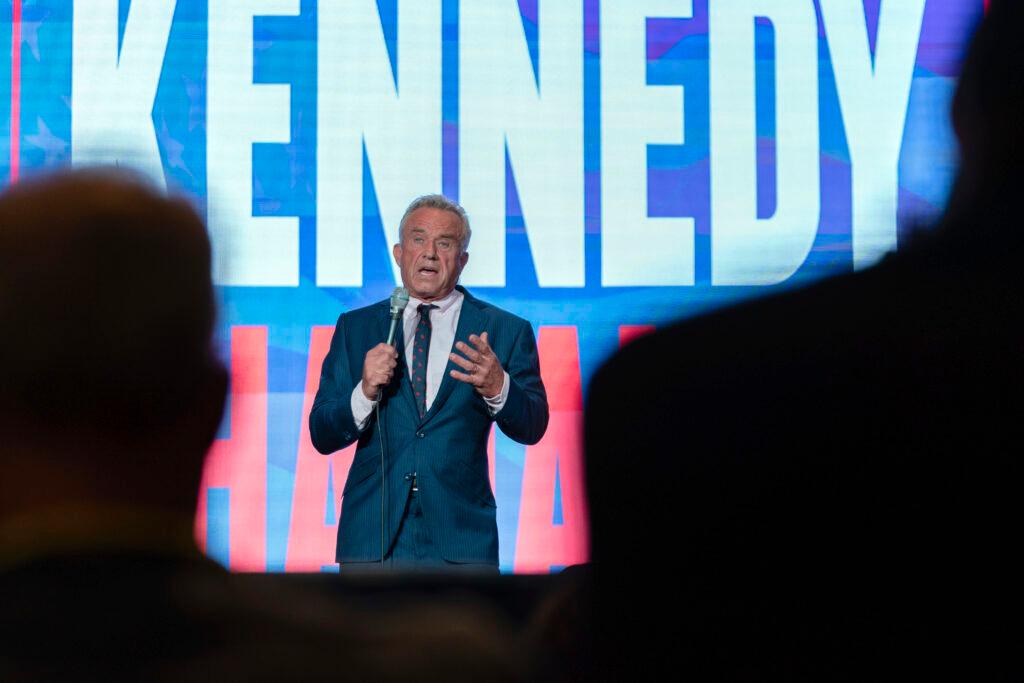
Those claims are misleading or not backed up by scientific research, according to FactCheck.org, a project run by the Annenberg Public Policy Center.
“The vaccine can cause some similar symptoms, but is much safer than getting measles,” its authors wrote.
Higgins, who is the vice president for the Colorado chapter of the American Academy of Pediatrics, and on the board of directors for Immunize Colorado, said he’s looked into some of Kennedy’s vaccine claims. They often misrepresented the science, were misleading or were “sometimes outright false,” he said. “It's a mixed bag of those three things.”
The public battle over the make up of the CDC panel is already starting to play out. Kennedy pledged to not choose any “ideological anti-vaxxers.” The first batch of announced appointees on the panel included several who have spoken out against vaccination in some way, according to the New York Times.
A group of former committee members, including Dr. Edwin Asturias from the University of Colorado, published an article in JAMA Network Monday, titled Advisory Committee on Immunization Practices at a Crossroads. They wrote that the changes to the ACIP, combined with the “recent reduction of CDC staff dedicated to immunizations have left the U.S. vaccine program critically weakened.”
Vaccines are lifesaving, and “people in the U.S. deserve to have recommendations and broad access to use them to prevent serious diseases,” they wrote.
Coloradans ‘pretty protected’
Higgins said a companion bill makes Colorado’s push even stronger. It deals with insurance coverage for preventive health care services, and aims to help make sure Coloradans will have vaccines covered by insurance companies, regardless of what the ACIP or CDC do.
“Effectively, it's meant to help ensure the Colorados will still have access to vaccines,” he said.
“I think in Colorado we really are pretty protected,” from recommendations from the new ACIP panel, which may diverge sharply from those of the key medical groups, said Dr. Allison Kempe, a professor of pediatrics at the University of Colorado School of Medicine. Kempe served on the ACIP from 2013 to 2018.
If that happens, she thinks the state board will follow the national doctors' groups. But she worries some Coloradans may have a hard time navigating competing recommendations.
“There’s now going to be much more confusion and distrust among the public, among public health officials, primary care doctors,” said Kempe. “This could result in lower vaccination rates and, unfortunately, more disease and deaths.”
Frontline doctors weigh in
“It concerns me the political involvement that is creeping more and more into medicine,” said Dr. Clint Sowards, a primary care physician with San Luis Valley Health in Alamosa, located in southcentral Colorado.
Still, he said he doesn’t expect his main piece of advice to patients won’t change: “Always consult with your physician to see if this works for you.”
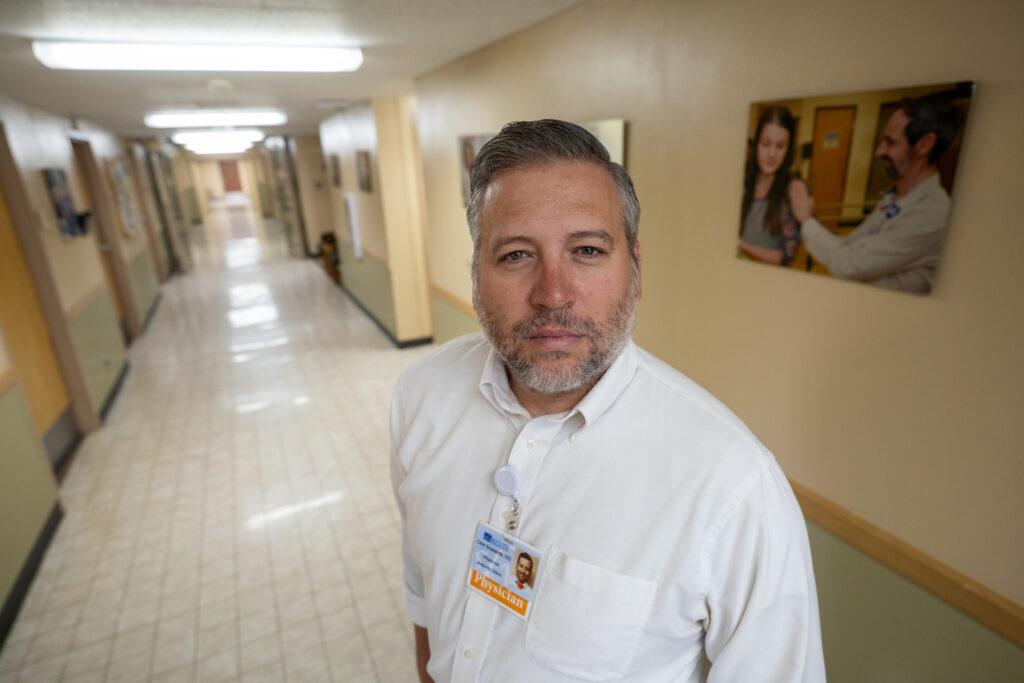
“I'm going to work with my patients and do what's best for them. I just don't want it to muddy the waters,” Sowards said. “I'm going to share just the facts, the evidence, and I'm going to make the patient feel comfortable in making their own healthcare decisions.”
He’s been practicing rural medicine for almost a decade and has noticed more younger patients and families expressing vaccine hesitancy.
“That's a dramatic shift that I've seen,” said Sowards. “So even if I educate and encourage and discuss the pros and cons, I'm finding a lot more barriers just from patients not wanting to do it. If you're on the fence, I have more of an opportunity to educate.”
Sowards said he’ll still pay attention to ACIP’s recommendations, but also will be listening to the state health board as well as the guidelines of key physician groups.
“My practice isn't going to change much right away,” he said. “I'm afraid, though, the changes at the ACIP are largely politically based. I haven't researched into the specific new board members.”
Some worried about impact of the new panel
“I think it was a wise move on the state to have done this,” said Dr. Judith Shlay, a family physician and the associate director of the Public Health Institute at Denver Health. She said it would ensure Coloradans get evidence-based information. “I would say Colorado is in a better shape than really anybody because of that law.”
With the upheaval on the ACIP, what has been for years a “renowned group,” Shlay said, “there's probably going to be some trust lost.”
She thinks Colorado’s board will weigh various recommendations carefully.
“I think we have really strong people in these various areas to help us make those good, strong decisions,” said Shlay, who is the medical director of the immunization and travel clinic at Denver Health.
Shlay worries recommendations by the ACIP, which get approved by the director of the CDC, will impact what immunizations are available nationally through the federal Vaccines for Children program. It provides vaccines to children whose parents or guardians may not be able to afford them. That includes groups like uninsured and underinsured children and those enrolled in Medicaid.
“That's going to be a problem. And that will limit vaccine uptake,” she said. “And remember, we're going through a measles, I would call, an epidemic right now, and it's only going to get worse.”
New poll reveals Coloradans' take on vaccines
A statewide poll released earlier this month showed a large majority of Coloradans see vaccines in general as effective and safe.
When asked how confident are you that vaccinations are effective, 76 percent said they are effective and 72 percent said they are safe. More than half of Coloradans surveyed said “very” to both questions. Twelve percent said they’re not confident at all vaccinations are effective, 14 percent said they’re not confident at all they’re safe.
Magellan Strategies conducted the poll of 675 registered voters for health advocacy group Healthier Colorado from May 29 to June 4. It has a margin of error of plus or minus 3.77 percent at the 95 percent confidence interval.
Those who said they were not confident vaccines are safe gave several reasons to pollsters. Those included concerns about COVID-19 vaccine safety and side effects, distrust in pharmaceutical companies and government agencies, lack of long-term research and transparency, opposition to mandates and perceived loss of medical freedom and beliefs in vaccine-related harms, like autism and toxic ingredients.
The poll also asked residents if they believe vaccines cause autism in children. A broad majority, 69 percent, said no, with 54 percent saying definitely not and 15 percent saying probably not. Eighteen percent said yes; 11 percent said probably yes and 7 percent said definitely yes.
The question revealed a sharp political divide.
Half of Republicans said vaccines cause autism in children. Ninety-one percent of Democrats said they do not. Independents also largely said vaccines do not cause autism in children, with 76 percent saying they do not, 11 percent said they do and 13 percent were unsure.
The poll also asked about some well-known state and national political figures. Fifty-seven percent of those polled voiced an unfavorable opinion of RFK Jr., an attorney and the son of former U.S. Senator and U.S. Attorney General Robert F. Kennedy. Forty percent view him favorably. Three percent had no opinion. His unfavorable numbers rose 10 percentage points in Colorado since December, according to the survey.
Meanwhile, Colorado has recorded far more measles cases in 2025 than every year of the last decade combined. That seems to be having an impact on vaccinations — Coloradans are getting more of them.
The state reported a sharp increase in MMR vaccinations in recent months. The state’s chief medical officer said he believes it’s due to Coloradans hearing more news about measles cases.

